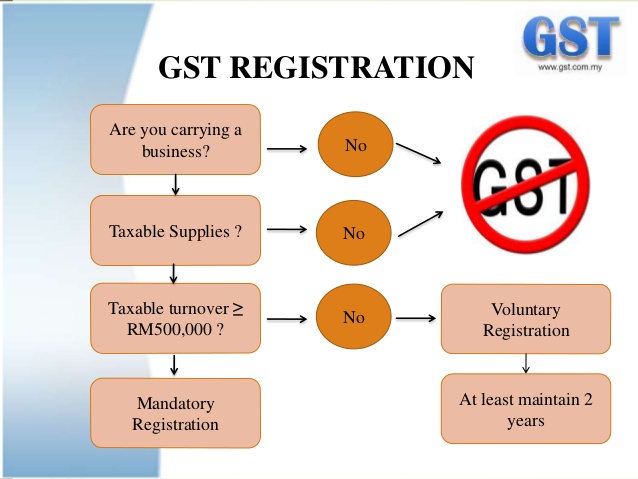Top Ranked Best GST Registration Services in Singapore for 2024
Top Ranked Best GST Registration Services in Singapore for 2024
Blog Article
From Beginning to End Up: The Ultimate Roadmap to GST Registration for Companies Looking For Financial Security
Navigating the intricacies of Goods and Services Tax Obligation (GST) enrollment is a vital step for companies making every effort for financial stability. From comprehending the basic principles of GST to abiding with post-registration standards, the process can seem intimidating at initial glance. Nonetheless, breaking down the roadmap right into convenient steps can simplify the registration journey for organizations wanting to improve their economic standing. Allow's discover the crucial elements that compose this supreme roadmap and discover exactly how each phase adds to laying a solid structure for economic success.
Understanding GST Essentials
Diving into the essential concepts of Product and Solutions Tax Obligation (GST) is important for obtaining an extensive understanding of its effects on companies and the economic climate. Input Tax Credit History (ITC) is a substantial attribute of GST, allowing companies to declare credit for taxes paid on inputs, minimizing the total tax obligation burden. Comprehending the fundamentals of GST is vital for organizations to comply with tax guidelines, handle their finances efficiently, and add to the nation's financial development by getting involved in a clear tax obligation system.
Qualification Standards for Enrollment
To register for GST, businesses must meet particular eligibility requirements developed by the federal government. The key qualification need is that any company involved in the supply of goods or solutions with a yearly aggregate turnover over the threshold limitation set by the authorities have to sign up for GST. Since the existing laws, the threshold restriction for GST registration is a yearly aggregate turn over of 40 lakhs for organizations operating within a state, with the exception of special category states where the limitation is 20 lakhs. Furthermore, particular businesses are called for to register for GST irrespective of their turnover, such as interstate providers, laid-back taxable individuals, and services reliant pay tax obligation under the reverse fee device. It is critical for organizations to completely evaluate their turn over and deal types to establish their GST enrollment obligations accurately. Failure to sign up for GST when eligible can result in penalties and legal consequences, making it crucial for companies to stick to the defined eligibility standards.
Papers Needed for Enrollment
Having satisfied the qualification standards for GST enrollment, companies have to currently ensure they have the requisite records in position to proceed with the enrollment process effectively. The records needed for GST registration commonly consist of proof of organization constitution, such as collaboration action, registration certification, or unification certification for various sorts of businesses. Additionally, businesses require to give papers developing the principal location of organization, such as a rental arrangement or electrical energy costs. Frying pan card of business, as well as the identification and address proof of promoters/partners/directors, are vital for confirmation functions. Financial institution account statements, together with canceled cheques or a copy of the bank passbook, are required to validate the financial information given during enrollment. Companies have to have electronic signatures ready for the accredited notary. Making certain all these files are organized and conveniently offered will expedite the GST enrollment process, allowing businesses to adhere to tax obligation regulations flawlessly.
Step-by-Step Enrollment Process
Starting the GST registration process entails a series of structured actions to ensure a certified and seamless enrollment for companies. The primary step is to see the GST website and load out the enrollment form with exact details of the company entity. Following this, the applicant receives a Short-term Reference Number (TRN) which is used to return to the application process if it's not completed in one go.
Next, all needed records as per the list you could try these out provided by the GST portal requirement to be uploaded. These papers commonly consist of evidence of company identification, address and registration proofs of marketers, economic declarations, and organization entity's frying pan card.

Post-Registration Compliance Guidelines

Conclusion
In conclusion, businesses seeking economic security needs to comprehend the fundamentals of GST, meet eligibility criteria, gather necessary files, adhere to the detailed registration procedure, and abide with post-registration guidelines - Best GST registration services in Singapore. By adhering to these actions, services can guarantee conformity with tax obligation policies and maintain economic stability in the long run
Additionally, particular organizations are required to sign up for GST regardless of their turnover, such as interstate providers, laid-back taxable persons, and organizations responsible to pay tax under the reverse fee mechanism.Having actually fulfilled the qualification criteria for GST registration, services need to now ensure they have the requisite papers in place to continue with the enrollment process efficiently. The papers required for GST registration normally consist of evidence of organization reference constitution, such check as partnership act, registration certification, or consolidation certificate for different types of businesses. Additionally, services need to supply documents developing the principal area of organization, such as a rental contract or power costs.Beginning the GST enrollment process includes a series of structured steps to guarantee a smooth and certified registration for companies.
Report this page